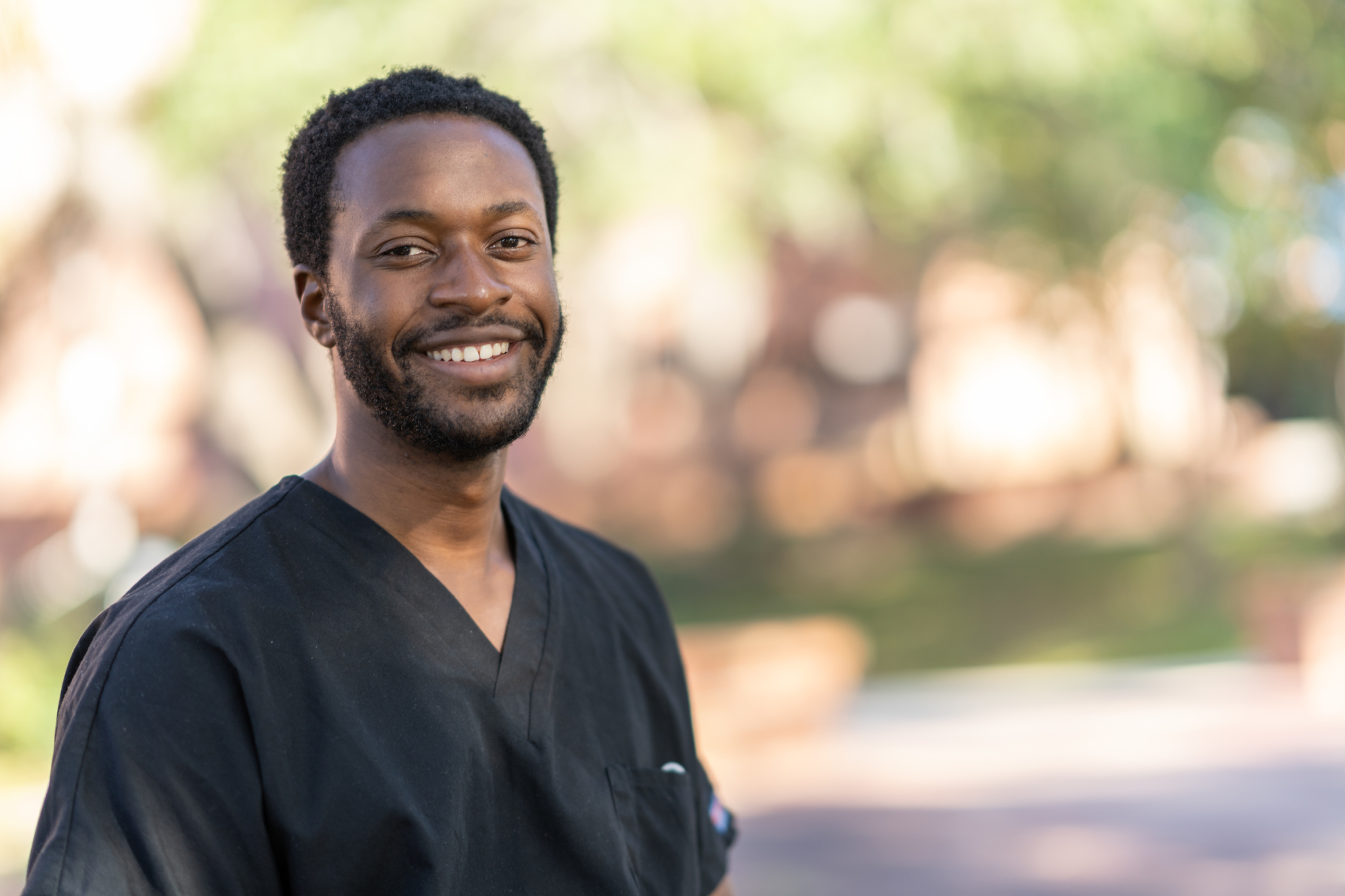Graduate Highlight: How a UF student went from a classical performer to speech-language pathologist

(UF Health/Jesse S. Jones)
Loïc Adjevi-Neglokpe never would have imagined a Google search on the mechanisms of voice was going to change his career trajectory and propel him into the profession of speech-language pathology.
Adjevi-Neglokpe is graduating this spring with a master of arts in communication sciences and disorders from the University of Florida’s College of Public Health and Health Professions.
As an undergraduate at Jacksonville University, Adjevi-Neglokpe, who is passionate about music, visual artistry and opera singing, majored in classical voice performance. He became interested in learning more about the anatomy and physiology of the voice to improve his technical singing.
With encouragement from his classical voice instructor and the director of the communication sciences and disorders program at Jacksonville University, he enrolled in prerequisite courses and completed the bridge program in communication sciences and disorders. Next up: acceptance into the master’s program at the UF PHHP’s Department of Speech, Language, and Hearing Sciences.
“My understanding from a viewpoint as a singer and also as a clinician has allowed me to speak from different perspectives and relate to patients,” said Adjevi-Neglokpe who is now in his final externship with Mayo Clinic Florida in Jacksonville. “My experience and training in artistry has helped me bridge the gap between the recreational or creative use of the voice and the functionality of the voice from a clinical standpoint.”
In addition to his role as a clinician and researcher of the voice, Adjevi-Neglokpe is a lyricist, a stand-up comedian, a musician and an opera singer.
“I love the process of creating,” Adjevi-Neglokpe said. “You have to be able to transition your modes of thought, but I believe there’s a lot of translations between being in a creative realm to that of a clinical one. A good speech-language pathologist can switch hats easily; they know their scope of practice, but also where it bridges with someone else’s. Artists do that and so do great clinicians. They can factor in patient-centered care and use empathy within whatever they’re doing clinically. They can pair logic with emotion. They have knowledge as the basis, and then they add in stylistic choices to better serve patients.”
For other students considering a clinical career or those who are coming to the world of speech-language pathology from a non-traditional path, Adjevi-Neglokpe recommends leaning into one’s passions and unique knowledge sets to approach the challenge of learning new clinical skills.
“Really nerd out as much as you can,” he suggests. “Take advantage of the not knowing, of being in a new space. Don’t focus on the anxiety of not knowing something, focus on the excitement and delve into that. When you don’t know anything, there is so much opportunity in that, so much potential to really soak things in.”
